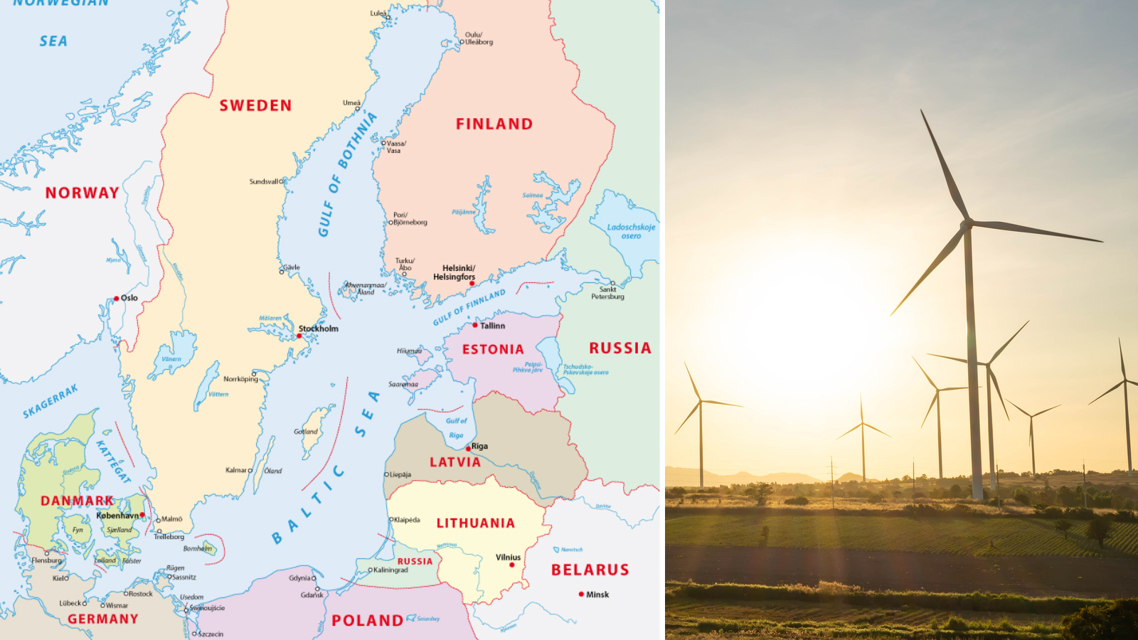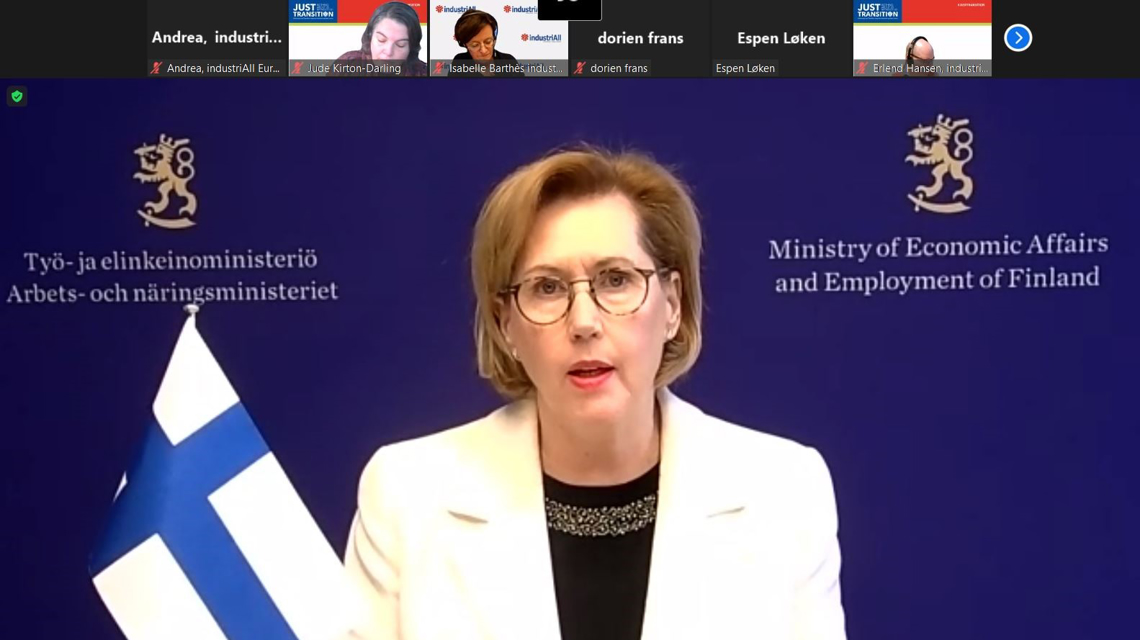The twin green and digital transition is ‘business-as-usual’ in the Nordic countries, because of strong social dialogue and social security.
IndustriAll Europe’s affiliates from Norway, Sweden, Finland, Denmark, Lithuania and Poland discussed the real-life challenges of the twin transition to a green and digital industry, and how trade unions are involved in managing them, at their Nordic-Baltic Regional Workshop earlier this week.
The Finnish Labour Minister, Tuula Haataien, who participated in the workshop, presented Finland’s ambitious plan to debarbonise by 2035. She stressed the importance of involving trade unions in discussions about the green transition to ensure a socially responsible transformation for workers. She emphasised that timely anticipation and strategic planning before phasing-out sectors are crucial for a Just Transition. Life-long learning and strong social security systems are key instruments to successfully manage job-to-job transitions for affected workers.
In the Nordic countries, the anticipation and management of the twin green and digital transition are largely satisfactory. The Nordic model is based on strong social dialogue and high social security, and the economic fundamentals (a high-tech economy, highly skilled workers, not competing on labour costs) make a Just Transition for workers possible. Trade unions are involved in discussions on how to meet the green targets at all levels, from the tripartite level with the governments, to the sectoral and company levels. This way, unions can ensure job-to-job transitions for workers whose jobs are changing or disappearing, especially through the solid state-supported life-long education and training system that enables re-skilling and up-skilling.
However, the Nordic model alone cannot prevent depopulation and industrial deserts in regions where sectors are phased-out. Whilst it provides a good framework to ensure a Just Transition for affected workers, it provides no guarantee that quality jobs will be created in the same region. Policymakers thus need to ensure that the future of certain regions is not decided by companies alone. Some sectors, like cement, pose particular challenges. Currently, the only available solution to decarbonise this sector is carbon capture and storage, but this technology lacks public acceptance. Looking at the mining sector, coal mining could be replaced by raw materials mining. Here also, policymakers must ensure public acceptance and clear transition pathways.
The workshop discussions took place in the difficult context of surging energy and fuel prices in all countries. Demonstrations even took place in Norway, where the mounting energy costs are perceived by the population as unthinkable. In Poland meanwhile, coal miners are on strike for a pay rise that alleviates the 7.8% inflation and reflects the value of their efforts, as they have been working overtime and during weekends to avoid power interruptions.
Judith Kirton-Darling, industriAll Europe Deputy General Secretary commented:
“The energy crisis and the inflation surge are making the debate around the Green Deal and the Fit for 55 package even more difficult. European workers and their trade unions continue to demand hard legislation to ensure the social dimension of the Green Deal. For the moment, we only see hard law in the case of the climate targets and soft recommendations for the social ambitions. The green transition is accelerated by policymakers, so they have the responsibility to correct this imbalance.”
Isabelle Barthès, industriAll Europe Deputy General Secretary said:
“The Nordic case shows once again the value of a strong social dialogue and collective bargaining system, which ensures that workers and their trade unions have a say about their future. The twin green and digital transition is ‘business-as-usual’ in the Nordic countries, because of strong social dialogue and social security. We expect policymakers to learn from this best-case example and promote it across Europe.”
*The event was the fourth in a series of 7 regional workshops that will take place across all regions of Europe until April 2022. They are part of industriAll Europe’s Just Transition campaign. The next workshop on 22-23 March will be dedicated to the South-East European Region.
Contact: Andrea Husen-Bradley (press and communication), Patricia Velicu (policy adviser)

